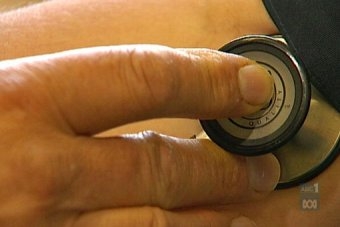
HEALTH funds want to pay general practitioners to keep patients out of hospital in a health care revolution they claim will deliver “mind boggling savings” for our health system.
The insurers have presented a plan to Health Minister Peter Dutton that would see them sign doctors up to treat their members according to set clinical guidelines.
One major insurer, BUPA, is exploring the possibility of funding palliative care for dying patients in their own homes to cut costs and make patients more comfortable.
“For me dying with dignity is something everybody’s keen about,” BUPA managing director Dwayne Crombie told News Corp Australia.
“Ultimately most people shouldn’t end up in an acute hospital and if possible you should be able to manage most people at home with family and community support from GPs and nurses,” he said.
The fund is also examining ways it can get general practitioners to sign more patients up to nurse led counselling programs run by the fund to help patients manage their chronic diseases and keep them out of hospital.
Private Healthcare Australia chief Dr Michael Armitage says initial costings suggest private insurers could save the health system tens of billions of dollars a year by improving primary care.
Dr Armitage accuses doctors of ignoring clinical treatment guidelines drawn up by medical colleges designed to produce the best health outcomes for patients.
A set of guidelines for acute coronary syndrome drawn up by medical colleges and the National Medical Research Council that prescribed six monthly ECG’s and two medicines for patients was followed in just 4.9 per cent of patients, he said.
Enormous savings could be made in the health system if doctors followed these plans, he says.
Health funds are prevented by law from paying general practitioners or providing services funded by Medicare.
Health Minister Peter Dutton has told News Corp Australia he won’t change this law and he rejected the government’s Audit Commission plan of forcing Australians who earned over $88,000 out of Medicare forcing them to buy health insurance for all their health needs.
“We’re not going to implement that proposal,” he told News Corp.
Such a plan would have seen the premiums of these people nearly triple to $13,500 a year.
However, he says he does want to see insurers have a greater role in the primary care space.
“For 11 million Australians, insurers have a vested interest in helping those patients have a healthy lifestyle and address their health needs and if we can do that in a way that supplements what we provide through Medicare then I think that is good value for the taxpayer,” Mr Dutton said.
The minister is waiting for the results of various trials being run by health funds before he makes a final decision.
One of the key problems is how health funds manage the problem of paying GPs to treat members of other health funds or people who are not insured at all.
“I’d much rather there was an industry approach to it because everybody is having to contribute collectively,” says BUPA chief Dwayne Crombie.
Doctors are likely to be highly suspicious of the move if it smacks of the managed care health funds operate in the United States that restrict the services patients can get.
Mr Crombie says what the Australian health funds are talking about is “evidence based care” and he says “ no-one can disagree with any of those things, because I’d want them as a patient”.
Some of the trials being run by the funds, including BUPA, see health funds pay the GP practice to bulk bill their members.
Mr Crombie says there will need to be a rethink now the government wants to increase a $7 GP fee.
“We all know the economic theory that if you put a price signal you do drive down unnecessary demand, the problem with economic theory is the people who go less often to the GP tend to be people at the bottom who’ve got more need,” Mr Crombie said.
“The government have chosen to go ahead knowing the downside and the upside of that and the kind of difficulty GPs and everybody in the area have is to try and figure out how do we ameliorate the impact on those most in need,” he said.
Source: Courier Mail
